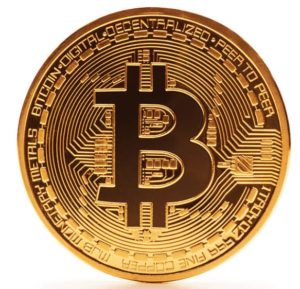Millennials are Choosing Bitcoin Over Gold
Bitcoin has often been called “gold for millennials”. A growing number of young adults are choosing to invest in alternative commodities like Bitcoin instead of traditional options like gold.
According to Forbes, more than 1 in 4 millennials prefer Bitcoin to stocks. In a poll, 27% of millennials said they would prefer owning $1,000 of Bitcoin over $1,000 in stocks. Similar numbers said they’d prefer Bitcoin over traditional investments like real estate, gold, and government bonds.
Why are more millennials investing in Bitcoin? Is this just a stupid trend? Or is this a legitimate shift in how future generations will invest? Today, we’re explaining everything you need to know about millennials choosing bitcoin over gold as an investment.
Millennials Are Wary of Traditional Investments Because They Went Through the Worst Recession in Generations
There are a number of reasons why millennials are choosing Bitcoin over gold. One of the biggest reasons, however, is the “Great Recession” of 2007 to 2009.
Many millennials got their first investment experience during this period. Many millennials had grown up being taught to “invest early”. These people deposited their first paychecks into stocks, bonds, gold, and other investment options recommended by their parents. After all, the market had been strong for decades, and it showed no signs of slowing down.
Unfortunately, the timing was very poor for these millennials. They followed the advice of their parents, invested in stock markets hoping to access a safe investment opportunity, then watched their money disappear as the world went through the worst economic depression in nearly a century.
Ultimately, many millennials continue to shy away from traditional investment opportunities for precisely this reason. They’re gun-shy about the investments recommended by older generations.
Interest Rates Have Been Low for a Decade, Leading to Poor Investment Returns
As the world has recovered from the recession of 2008, stock market returns have been pretty good. However, interest rates have been at a historic low. That means millennials are watching their savings accounts collect puny ROIs.
Growing up, millennials were told by their parents to aim for 5% returns per year. If you put your money in an account where it generates 5% returns per year, every year, then you’re going to have a comfortable retirement 40 years down the road.
With interest rates at historic lows, however, few investments pay a guaranteed return of 5% per year. Most savings accounts have paid millennials returns of 1% or lower. Bonds and other safe investments pay similarly low rates. Millennials have become disillusioned by the myth of compound interest turning them into millionaires over a long period of time.
Bitcoin Offers Dramatic Returns and Amazing Stories Millennials Can Relate to
Today’s millennial generation is facing a hard economic future. Gone are the days when a high school degree guaranteed a steady job, a good salary, and a big house. Today’s millennials – particularly in the United States – face higher student loan debt than previous generations. They’re paying more for education than any previous generation. They face a bleaker economic future than any previous generation.
For all of these reasons, millennials are constantly hoping for a big payday. They don’t want to sit and watch their money earn a 0.5% return. Those measly returns aren’t going to cover inflation – not to mention student loan payments at 6% interest.
That’s where Bitcoin comes in. Bitcoin is filled with stories of ordinary people – including students, millennials, and young people – investing a small amount of money and striking it rich a few years later. At the end of 2016, one Bitcoin was worth $700. By November 2017, Bitcoin was flirting with an all-time high of $8,000. In 2009, one Bitcoin could be purchased for pennies.
Bitcoin also has a capped supply. There will never be more than 21,000,000 bitcoins. This is completely different than gold (which can be mined) and stocks (which can be diluted). If you own bitcoin you own a good that should continue to appreciate in price forever.

Millennials Believe Bitcoin Is More Useful than Gold
Gold has had value throughout human history. In ancient times, it was an attractive, malleable metal that could be used in jewelry, ornaments, and coins. But times may be changing.
Gramercy Gold surveyed 100 American millennials aged 25-30 to get their thoughts on whether or not bitcoin is a better investment than gold. According to the results, the overwhelming majority of respondents made it clear that bitcoin was their investment of choice in 2018. Our key findings are highlighted below:
– 67% of respondents are more likely to buy bitcoin than gold in 2018, with only 26% of respondents saying that are more likely to buy gold.
– 66% of respondents say that they are not likely to buy gold in 2018, with only 3% of respondents saying they are very likely to buy gold in 2018.
– 30% of respondents claim that they already own bitcoin as an investment.
– Only 16% of respondents claim that they own gold as an investment.
– 76% of respondents think that bitcoin will either increase in value or maintain its value in 2018. 52% think that bitcoin will increase in value.
– 54% of respondents think that gold will maintain its value in 2018, with only 22% of them thinking it will increase in value.
– The majority of respondents (57%) are either somewhat likely (32%), very likely (16%), or extremely likely (9%), to use bitcoin to purchase items in 2018.
The respondents think that there are many different factors that will contribute to bitcoin’s success in 2018. One person says, “bitcoin will increase in 2018 because everyone is rushing to get their share of bitcoin.” Another person says that “widespread adoption for purchasing and continued media effect will drive value higher. In the event of political crisis or threat of crisis, value will spike higher.” Another respondent said that “there is talk of some countries banning it, which may only increase the investment as millennials would want to “fight” the ban.” One more person who is bullish on bitcoin said, “I think if more and more governments start recognizing and accepting bitcoin as a currency then it will spike in value.”
As for gold’s outlook in 2018, millennials seem to be less optimistic. One person said that gold “will still maintain its value. But will slowly fade away as bitcoin gains traction. People will stop using gold as physical currency isn’t easily transferable.” Another person thinks that “gold will be labeled as old and inferior (to bitcoin).” One more respondent said, “I think the price of Bitcoin going up will have a huge influence on the price of gold. As the price goes up for bitcoin, gold will go down.”
The survey results clearly demonstrate that millennials are slowly moving away from gold and moving towards bitcoin. To see if their predictions come to fruition, or if bitcoin is just another “millennial fad”, we will have to simply wait and see.
Today, gold still has enormous value. However, the uses for gold have changed. Today, fiat currencies worldwide aren’t backed by any gold reserves. Instead, gold is used mostly for jewelry and electronics.
Many millennials believe Bitcoin has more value. Bitcoin is an international currency that can be transferred over the internet for pennies. It’s a currency for a new, digital, international economy. That’s where the value of Bitcoin comes from: it comes from its usefulness.
Gold is difficult to transport in large quantities and needs to be stored in a safe or extremely secure location. Bitcoin is stored in digitally encrypted “wallets” and can be accessed from anywhere in the world, and sent anywhere in the world.
Millennials Believe Fiat Currencies Are an Outdated Concept
Throughout history, currency has always had value. Coins were made using precious metals, or dollar bills represented real gold reserves in places like Fort Knox.
Millennials, however, have grown up in a world where fiat currency has no concrete value behind it: the value of a currency like the US Dollar isn’t attached to any concrete level of gold reserves. It’s based on supply and demand. When demand for the US Dollar disappears, a $1 USD bill just becomes a piece of paper with a dead president’s face on it.
This is where Bitcoin is different. Many older generations believe Bitcoin is based on absolutely nothing: its high prices are fueled exclusively by supply and demand. That’s why many older generations have dismissed it as a silly, passing trend.
Millennials, however, have grown up in a world where the value of all currencies are based on supply and demand.
Whether it’s the US Dollar or Bitcoin, supply and demand plays a huge role in the value of any currency. The value of the US dollar is based on the US economy, and the supply and demand of US-made goods, while Bitcoin is based on the value of its underlying blockchain technology, and the usefulness of that technology as a worldwide means of payment.
Millennials Are More Aware of Technology than Older Generations
The younger generation is typically more knowledgeable about technology than the older generation. It’s reasonable to assume that the average millennial heard about Bitcoin long before the average 50+ year old person.
Furthermore, many older generations dismissed – and continue to dismiss – Bitcoin as a fad, a bubble, or a niche investment vehicle for geeks. They don’t always understand the value of the underlying blockchain technology, nor do they understand the importance of having a cheap way to transfer money worldwide.
Ultimately, millennials often prefer Bitcoin over gold because they’re more aware of Bitcoin – and the real value of Bitcoin – compared to an older investor. Instead of seeing it as a silly trend like an older investor, younger millennial investors recognize Bitcoin’s long-term usefulness.
Conclusion
Ultimately, younger demographics are a leading indicator of the future. Younger demographics are increasingly preferring Bitcoin to traditional investments like gold.
The only question is: what kind of impact will this have upon markets in the future? Time will tell whether Bitcoin wins in the long run – or if gold continues its centuries-long dominance as a preferred investment vehicle.



